Waking Up With Scratches On Your Skin? What Could It Be?
Find out what is causing those mysterious nocturnal cuts on your skin.
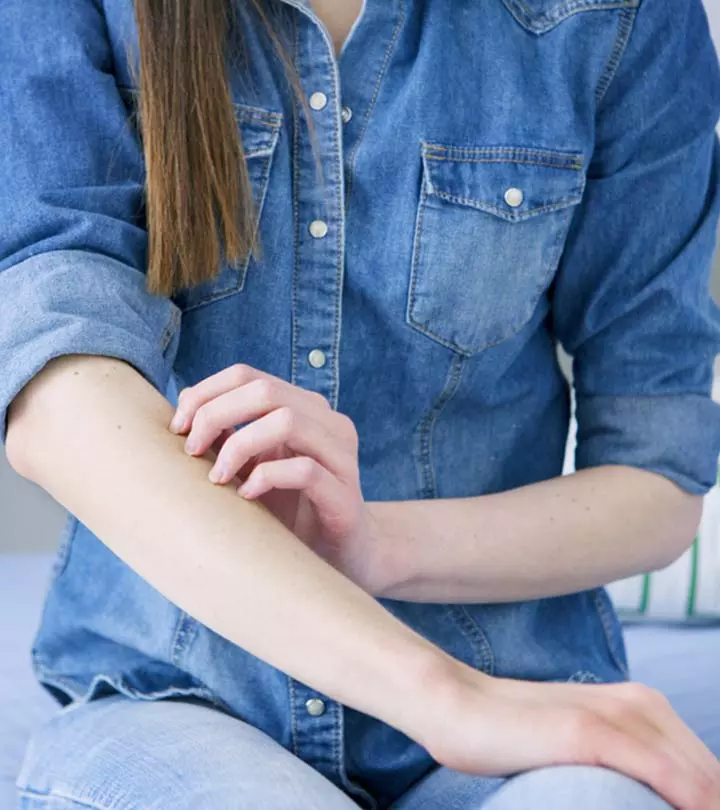
Image: Shutterstock
Are you waking up with scratches and cuts on your skin and confused about how you got them? We have the answer – you have probably scratched yourself while asleep. If you think it is impossible, science has an explanation. This condition is diagnosed as parasomnia. It is a sleeping disorder that involves unusual physical activities (like scratching and sleepwalking) that may disrupt your sleep. Parasomnia may occur when you are in deep sleep, or your brain is about to wake up from sleep. However, there could be other possible reasons for the unexplained scratches and cuts on your skin. Read this article to learn in detail.
In This Article
Types Of Scratches And Cuts
There are mainly three types of scratches based on their appearance and causes. They are (1):
- Linear: These are straight or nearly straight scratch marks on the skin, often caused by sharp objects in a line-like pattern.
- Grazed: These occur when the skin is rubbed against a rough surface, causing superficial wounds. It can cover a large area of the skin.
- Patterned:These abrasions have specific patterns and are caused by an object forcefully making direct contact with your skin, such as from blows, collisions, or accidents involving vehicles and pedestrians.
Since there are various appearances and causes of scratches and cuts, there may be several symptoms that appear when they occur. Read on to know more.
Key Takeaways
- There could be many reasons for waking up with scratches. It can be as simple as an insect bite to as complex as a condition called parasomnia.
- Your sleep patterns, existing skin conditions, pets, sleepwalking, or pregnancy can also be a cause.
- Topical solutions, moisturizers, and medications can help to a certain extent.
- If the rash or scratch is bleeding and you see any infection, you must consult your doctor.
Symptoms Of Scratches And Cuts
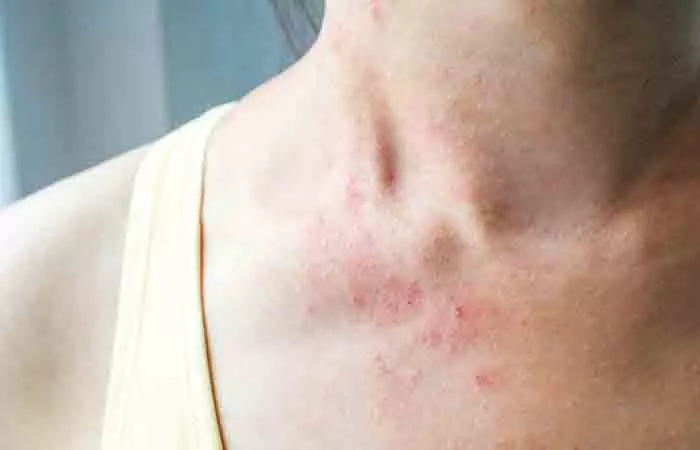
If you are waking up with scratches on your face, neck, or any other part of your body, they might lead to the following symptoms.
- bleeding
- swelling around the scratched area
- pain
- rash on the skin
- fatigue
- disrupted sleep
- irritation on the skin
The above symptoms can cause distress and may disrupt your daily activities.
In the next section, let’s explore the possible causes for these scratch marks.
Causes For Scratches And Cuts
- Sleep Pattern – Studies suggest that when you are sleeping at night, your skin experiences more water loss. At the same time, your body also secretes fewer amounts of cortisol, a hormone that regulates the metabolic process in your body. These factors have been linked to a person having the urge to scratch more at night (2).
- Skin Diseases – Diseases such as eczemai A chronic disease that causes inflammation, itchiness, and rashes on the skin and is common among young children. , scabiesi A contagious skin disorder characterized by itchy skin rashes caused by the tiny burrowing mite, Sarcoptes scabiei. , and psoriasis have been associated with severe itching and rashes, which may increase the probability of experiencing itchy skin at night, leading to scratching and cuts (3), (4), (5).
As per the American Academy Of Dermatology Association, psoriasis affects approximately 7.5 million people in the United States. It primarily occurs in adults, with the highest proportion seen in individuals aged 45 to 64. About 25-30% of people with psoriasis also experience joint inflammation known as psoriatic arthritis.
- Flagellate Dermatoses – A type of skin condition that is characterized by the development of marks resembling whiplashes. These scratch marks on your skin may develop as a side effect after a person goes through chemotherapyi A type of treatment that uses medications or drugs to kill or prevent the growth of cancer cells in the body. (6).
- Dermatographia – This is a type of disease where lightly touching or scratching your skin leads to the development of red scratch marks. These red scratch marks may develop on your skin when you are sleeping (7).
- Scratches From Your Pet – If you wake up with mysterious scratches, it is not always self-inflicted. If you are sleeping with a pet, then chances are they might have scratched you unintentionally while you were sleeping.
- Allergic Reactions – An allergic reaction to a medication, food, or material may lead to you scratching yourself at night while asleep. Other than scratches, you may wake up with swelling, rashes, or red skin (8).

- Sleepwalking – Also known as somnambulism, this is a condition where a person gets up and engages in physical activity while in deep sleep. Due to lack of consciousness in this condition, there is a high probability that you may bump into something and hurt yourself. Sleepwalking may also cause unintentional scratching while navigating your surroundings. Hence, it is crucial for sleepwalkers to keep their sleeping areas safe and free of potential hazards. Studies have shown that sleepwalking has led to people being administered in the hospital with wounds and injuries (9).
 Quick Tip
Quick Tip- Pregnancy – If you are pregnant, you will notice that as your belly starts to increase, you develop stretch marks that can itch a lot, which may lead you to scratch yourself when you are asleep (10).

- Insect Bites – If insects such as bed bugs or mosquitoes bite you while you are sleeping, then you might scratch yourself at night and wake up with marks on you.
- Nocturnal Pruritus – As the name suggests, this is a condition where you get the urge to scratch your skin at night. This may disrupt your sleep pattern and chances are you may wake up with scratch marks in the morning (11).
 Did You Know?
Did You Know?As you can see, there are several factors that may cause you to develop scratches and cuts while you are asleep. Remember that when the symptoms get worse, it’s important to seek medical attention.
When To See A Doctor
Most often, when you wake up with light scratches, they tend to resolve on their own. But if you see a sign of infection or bleeding, and the itching still persists, then it is advisable that you go visit a doctor. In the next section, let’s see how your doctor may diagnose the scratches on your skin.
Diagnosis Of Scratches On Skin
Your doctor will first conduct a physical examination to review your medical history and get a better understanding of the nature of the scratches and determine whether it is due to an allergic reaction, skin disease, or something else. If it is due to these factors, then your doctor will prescribe the appropriate treatment for the same. If your doctor cannot find any known reasons for these scratches, then he/she might refer you to a sleep specialist. The sleep specialist may do a sleep study to observe your behavior during sleep and then may prescribe the appropriate treatment for you (2). Let us look at the different treatment options available for scratches on your skin. If you have a particular skin condition, you may be eligible for a prescription cream.
Treatment Options
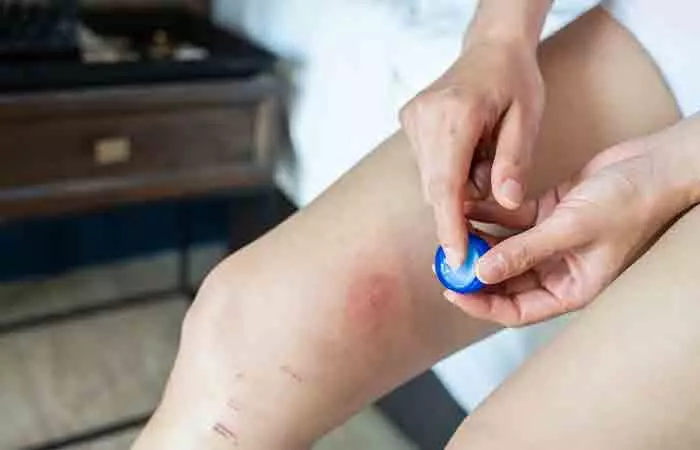
Find below a few treatment options available for you depending on the underlying cause of this condition.
- Topical Creams And Moisturizers – If you develop itching due to skin conditions such as scabies or psoriasisi An autoimmune disease that causes the buildup of skin cells, leading to scaly patches and inflamed rashes on the scalp and elbows. , then the effective treatment might be to apply different topical creams and moisturizers. These products, when applied, can help reduce the itching and keep your skin moisturized (4),(5).
- Medication – If the underlying cause of itching is due to an allergic reaction to a substance or food, consult your doctor. To reduce the symptoms, your doctor will prescribe antihistamines or corticosteroids which can help combat the urge to itch (12).
- Apply Natural Ingredients For Minor Cuts – If you have light or minor cuts, you can apply home remedies for skin itching, like aloe vera gel, which has been used for centuries to treat minor cuts (13).
As they say, prevention is better than cure. Let us read about the different ways to prevent yourself from scratching during your sleep.
How To Prevent Scratches And Cuts
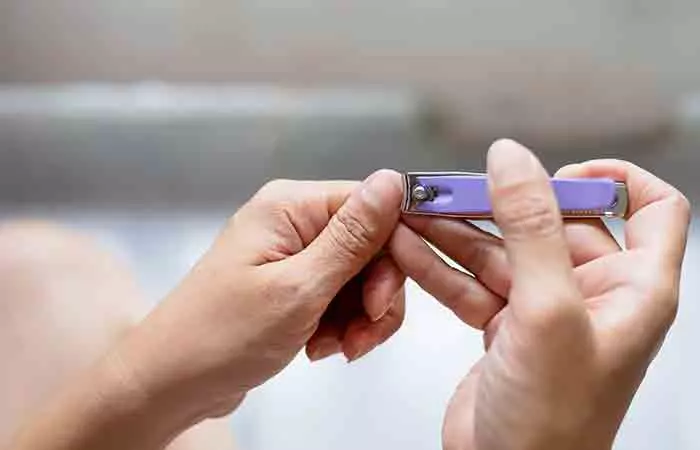
You will find below a list of simple tips that can reduce the risk of developing scratching yourself at night. They are:
- Reduce The Stress In Your Life – You may not know this, but stress and anxiety have been linked to increased itching and vice versa (14). Just before going to sleep, we might be plagued with many stressful thoughts that result in anxiety itching during sleep. To make sure you reduce the stress in your life, try mindfulness, meditation, deep breathing, or listening to music to relax your mind before going to bed (15).
- Keep your nails short or trimmed to reduce the risk of painful and deep scratches.
- If your scratches are due to your pet, then sleep alone for a few days in a separate room.
- Moisturize yourself regularly to avoid dry skin. This reduces the chances of scratching your skin. Create a daily routine that ensures good skin care while sleeping as this reduces the chances of scratching your skin.
- Wear soft cotton gloves at night to keep yourself from scratching.
- Spray your room with insect repellent to prevent insects from coming in and biting you.
Infographic: Best Treatment Options If You Wake Up With Scratches
Waking up with scratches and cuts on your body can be quite upsetting and a distressing experience that may involve discomfort. The most likely explanation is that you unintentionally scratch yourself while asleep. On the other hand, several skin disorders and rashes can also mimic the symptoms of scratch marks. Check out the infographic below to learn about some of the ways to treat them depending on the underlying cause. Illustration: StyleCraze Design Team
There are various reasons you could wake up with scratches on your skin. In some cases, waking up with scratches may be the result of an accident or trauma that occurred during sleep. It could be due to scratching during a dream or unknowingly scratching oneself while asleep. Skin diseases, allergic responses, and even an insect sting can also cause you to scratch yourself while you are asleep. Get the scratches evaluated by a dermatologist to determine underlying health issues or allergies. Your doctor may recommend medicine to control the itching, depending on the underlying cause. However, if you seek simple ways to stop yourself from scratching, keeping your nails clipped or reducing your stress levels can help you stay scratch-free.
Frequently Asked Questions
Will an itch go away if you don’t scratch it?
No. It may increase your urge to scratch. If you have uncontrollable itching, you must visit your dermatologist immediately.
How long do scratches last on the skin?
This depends on the severity of the scratch. If it is a minor scratch, it will heal within 7 to 10 days. But if it is a deeper one, the healing procedure may take more time.
Is it common to wake up with scratches and cuts?
No, it is not common to wake up with scratches and cuts, but if you have been experiencing this, it can indicate underlying health or mental conditions. It is best to consult a doctor and get diagnosed.
Are there any lifestyle changes that can help to prevent waking up with scratches and cuts?
Lifestyle changes like sleeping on soft and comfortable bedding material, trimming nails, and moisturizing dry skin can help reduce the risk of scratches and cuts which can lead to scars. Stress is also a reason for this, so try to manage it effectively and avoid stressful situations.
What advice can be offered to someone who frequently wakes up with scratches and cuts?
You can adapt to a healthy sleeping routine for good sleep quality like, switching off screens before going to bed, using a humidifier to add moisture to air and prevent dry skin, wearing protective clothing like long-sleeved gloves, and trimming nails regularly to prevent accidental scratching. However, it is essential to consult a doctor to diagnose and treat this issue.
Illustration: Waking Up With Scratches On Your Skin? What Could It Be?
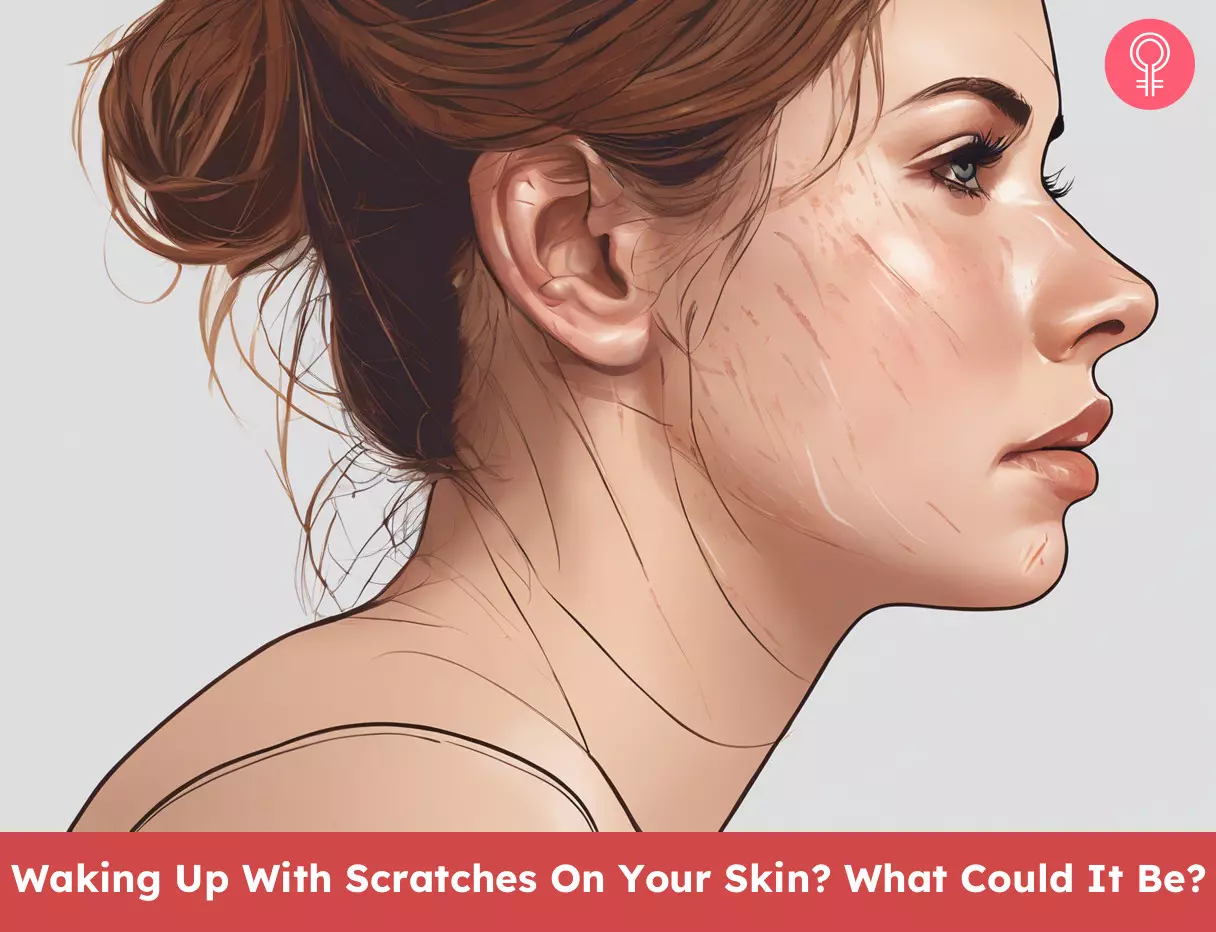
Image: Stable Diffusion/StyleCraze Design Team
Watch this informative video to learn more about what causes itching sensation all over your body and what effective treatment methods can help you relieve it.
References
Articles on StyleCraze are backed by verified information from peer-reviewed and academic research papers, reputed organizations, research institutions, and medical associations to ensure accuracy and relevance. Read our editorial policy to learn more.
- Abrasion
https://www.ncbi.nlm.nih.gov/books/NBK554465/ - Sleep Related Scratching: A Distinct Parasomnia?
https://www.ncbi.nlm.nih.gov/labs/pmc/articles/PMC4702205/ - Eczema
https://www.ncbi.nlm.nih.gov/books/NBK538209/ - Scabies
https://www.ncbi.nlm.nih.gov/books/NBK544306/ - Psoriasis
https://www.ncbi.nlm.nih.gov/books/NBK448194/ - Flagellate Dermatoses
https://ijdvl.com/flagellate-dermatoses/ - Dermatographism
https://www.ncbi.nlm.nih.gov/books/NBK531496/ - The development of allergic inflammation
https://www.ncbi.nlm.nih.gov/labs/pmc/articles/PMC3573758/ - Somnambulism: Emergency Department Admissions Due to Sleepwalking-Related Trauma
https://www.ncbi.nlm.nih.gov/labs/pmc/articles/PMC5102596/ - Prevalence and Relevance of Pruritus in Pregnancy
https://www.ncbi.nlm.nih.gov/labs/pmc/articles/PMC5632889/ - Nocturnal Pruritus
https://www.ncbi.nlm.nih.gov/labs/pmc/articles/PMC4813276/ - The role and choice criteria of antihistamines in allergy management – expert opinion
https://www.ncbi.nlm.nih.gov/labs/pmc/articles/PMC5183790/ - The Effects of Aloe vera on Wound Healing in Cell Proliferation Migration and Viability
https://pubmed.ncbi.nlm.nih.gov/30256753/ - The Vicious Cycle of Itch and Anxiety
https://www.ncbi.nlm.nih.gov/labs/pmc/articles/PMC5845794/ - Effects of Mindfulness-Based Stress Reduction on employees’ mental health: A systematic review
https://www.ncbi.nlm.nih.gov/labs/pmc/articles/PMC5783379/ - Nocturnal Pruritus: The Battle for a Peaceful Night’s Sleep
https://www.ncbi.nlm.nih.gov/pmc/articles/PMC4813276/
Read full bio of Dr. Schwarzburg
Read full bio of Eshna Das
Read full bio of Anjali Sayee
Read full bio of Swathi E






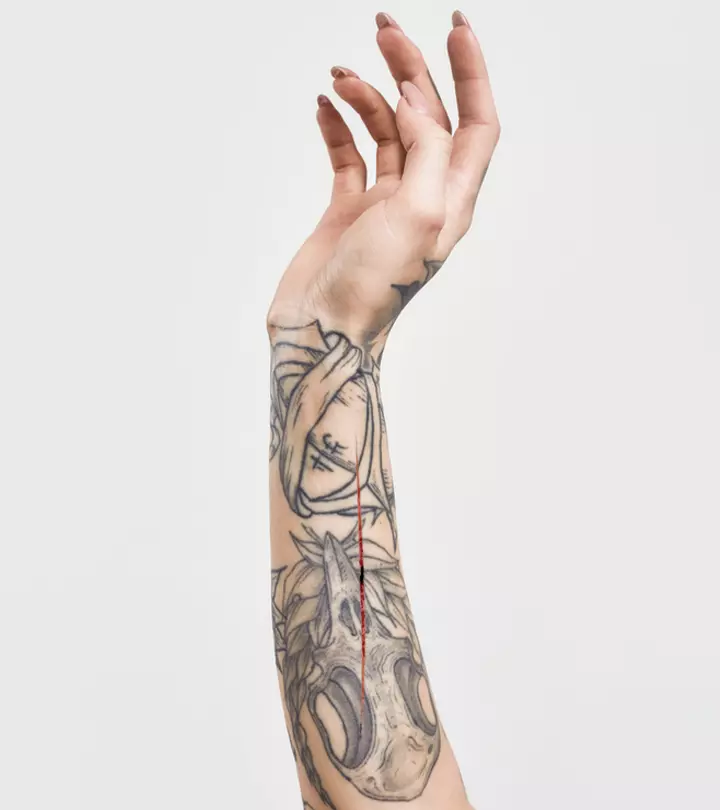
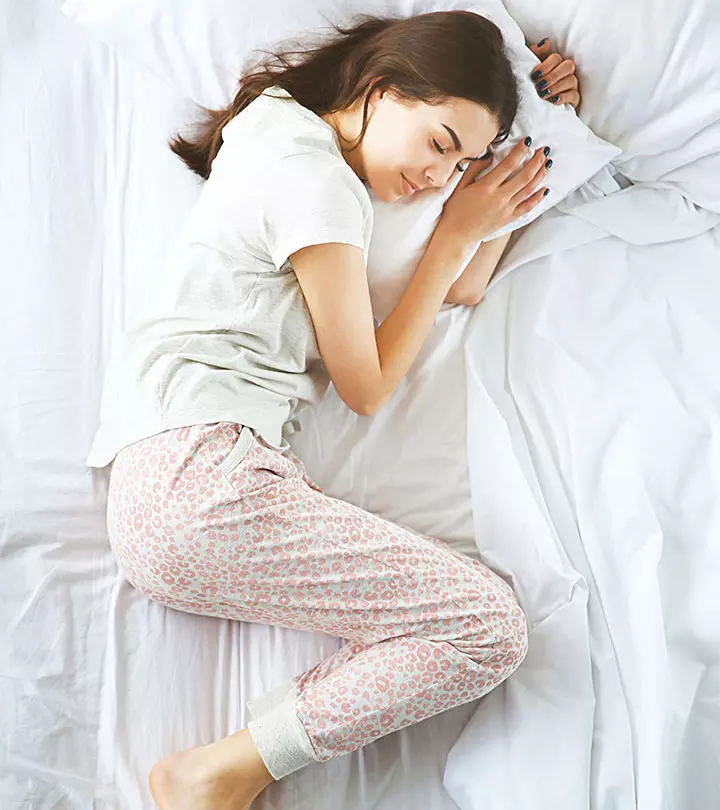

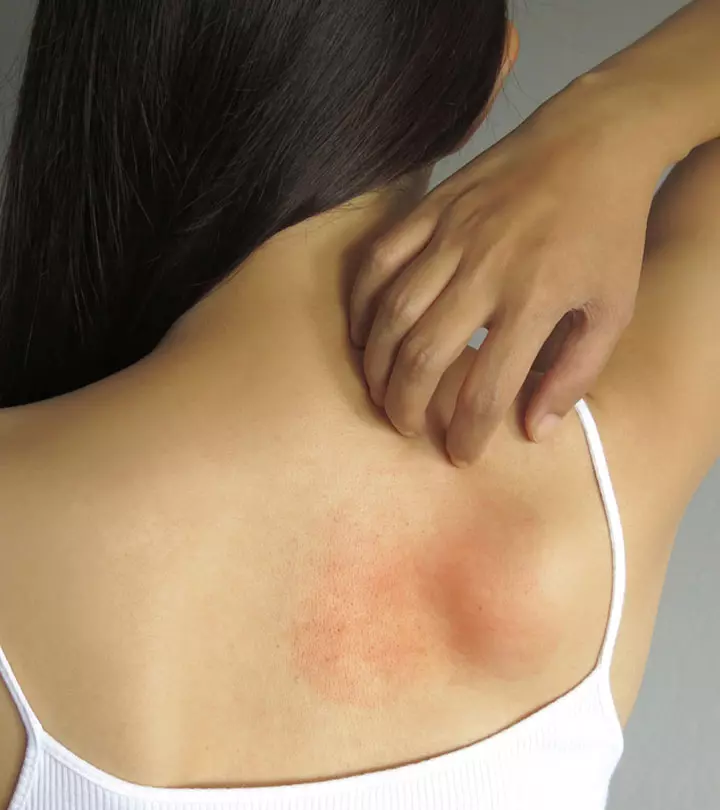
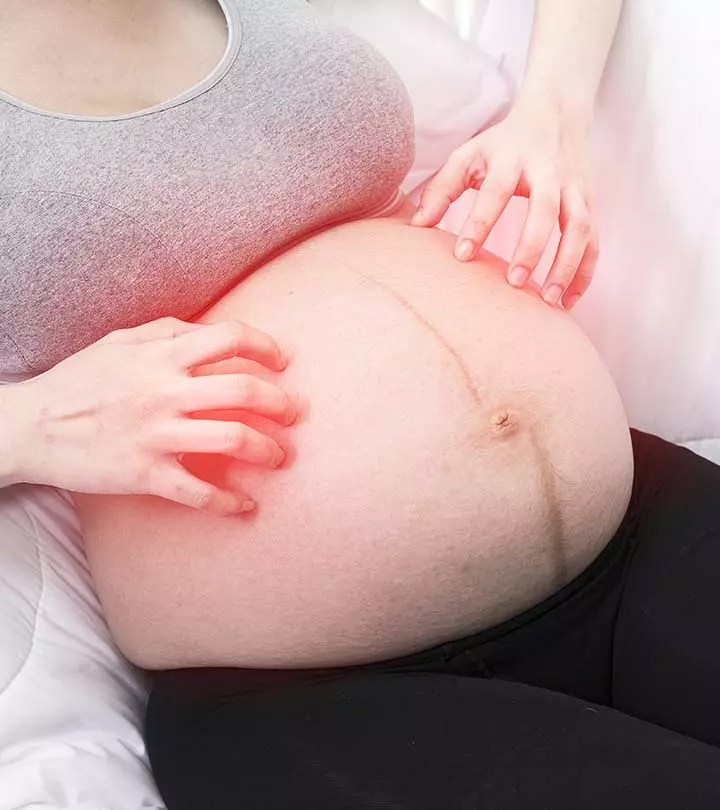
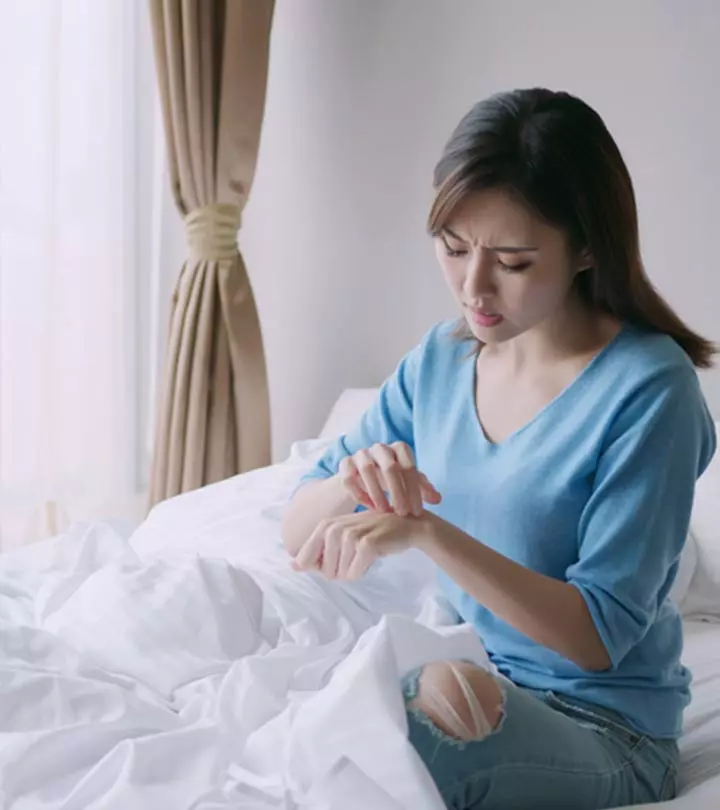
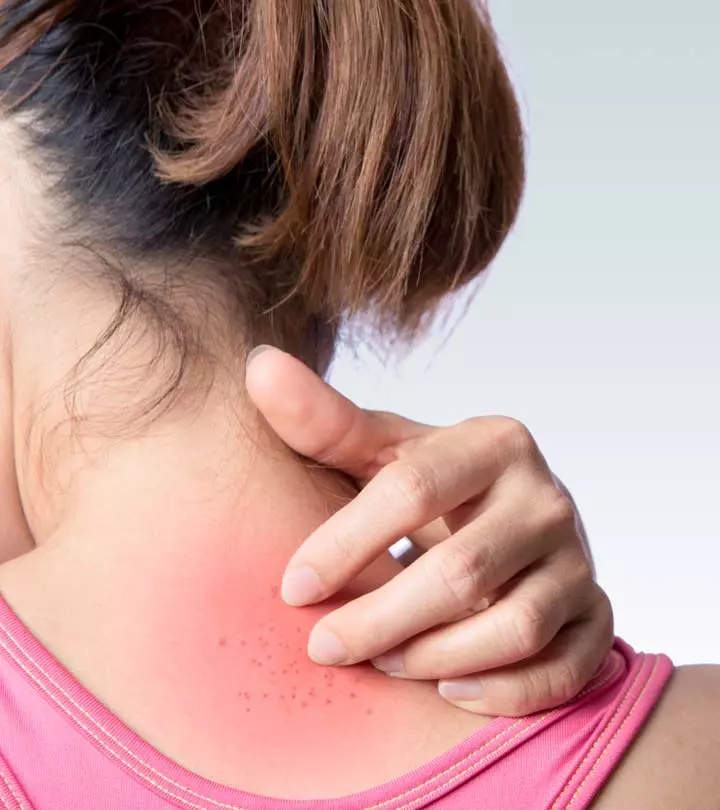

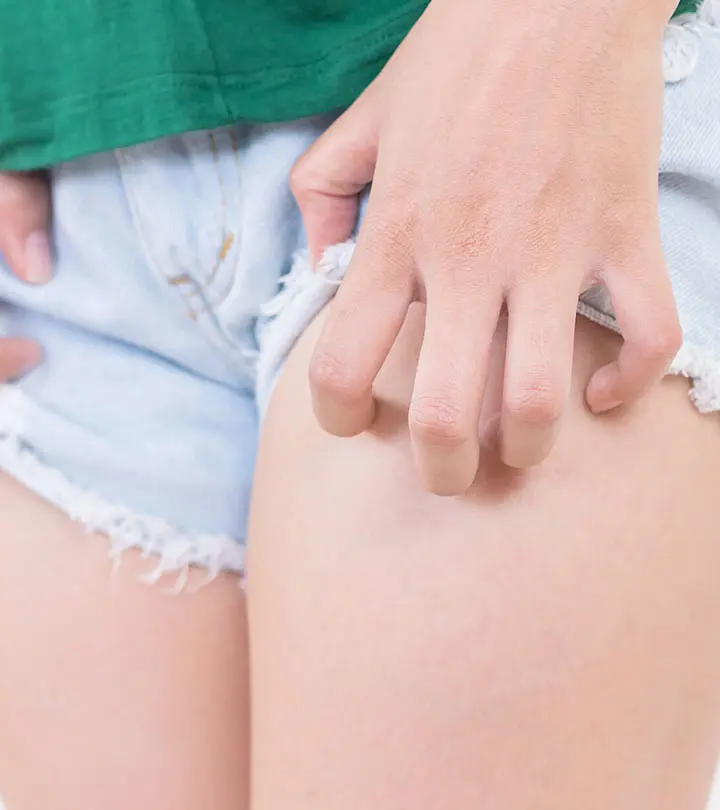
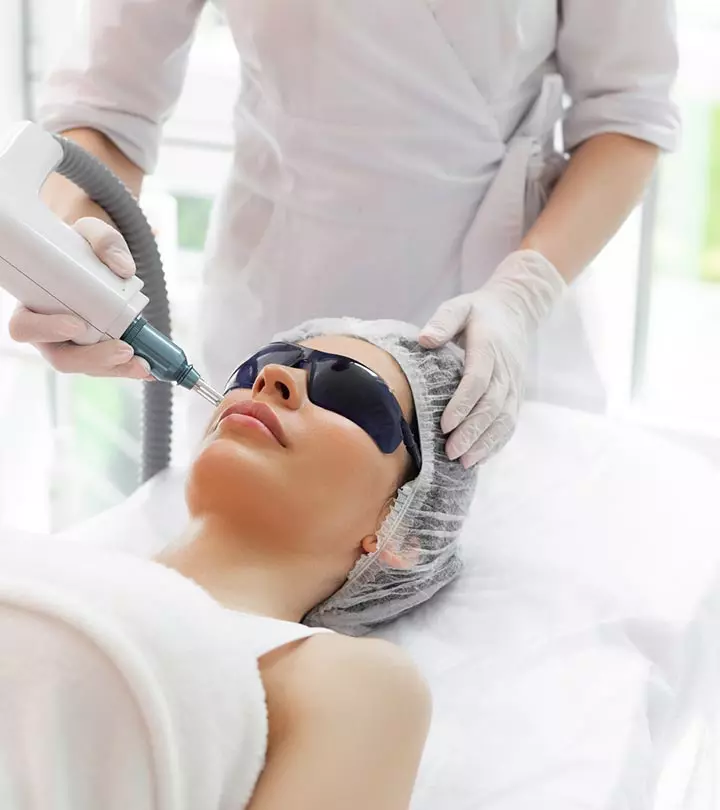

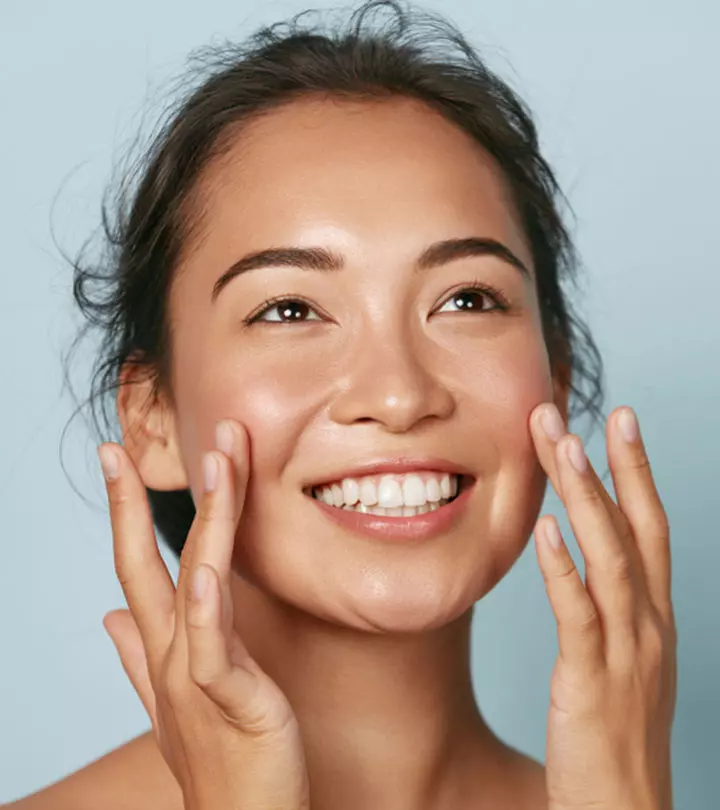

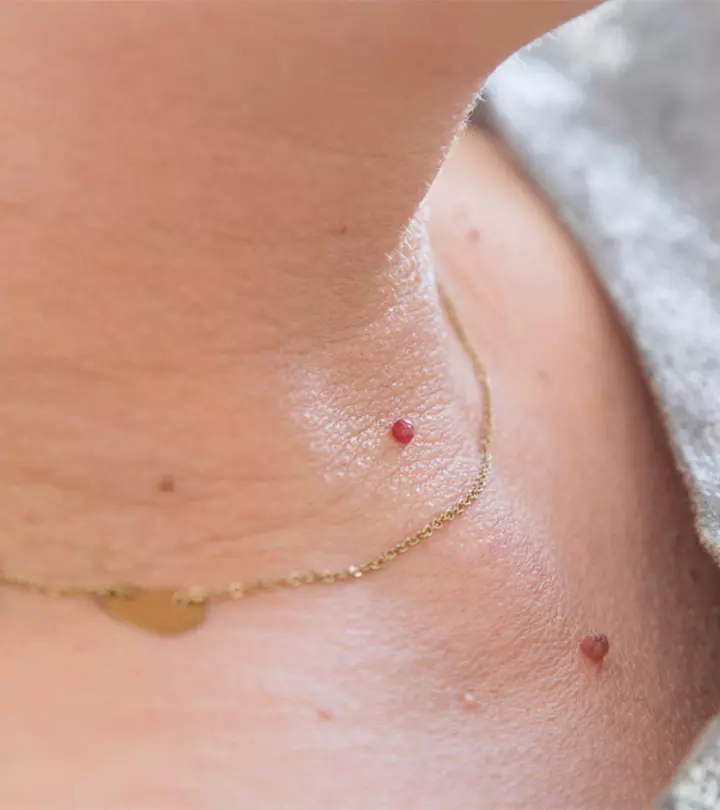
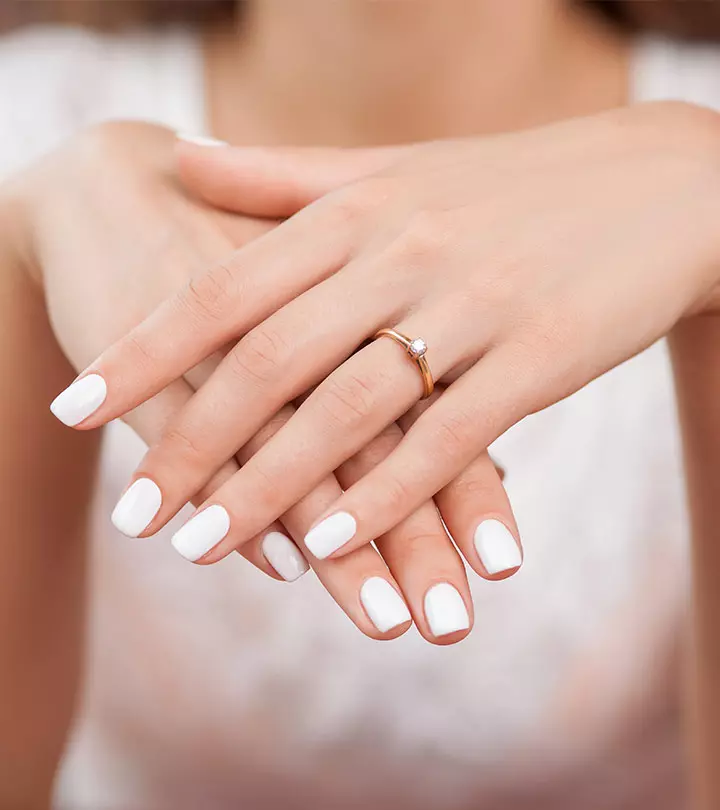
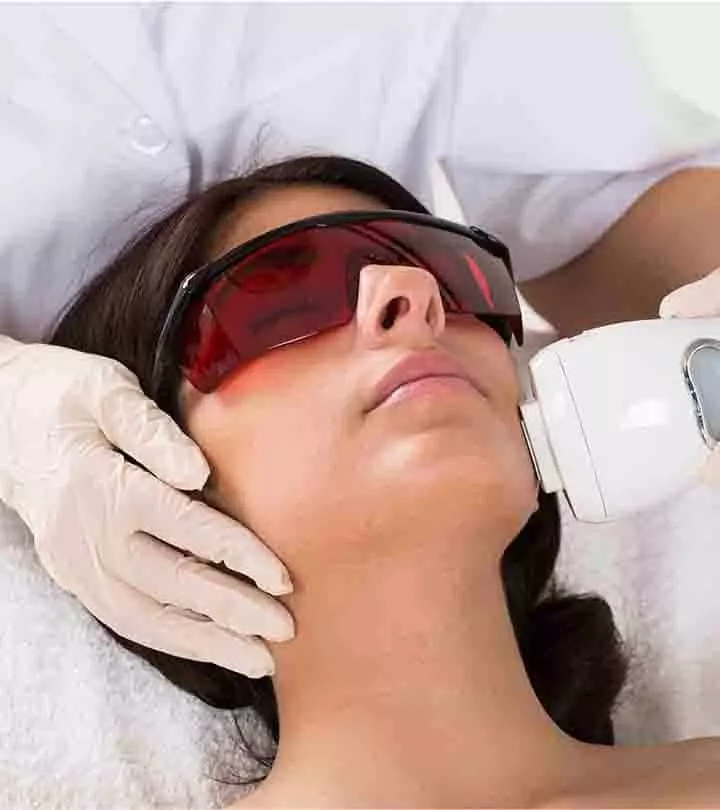
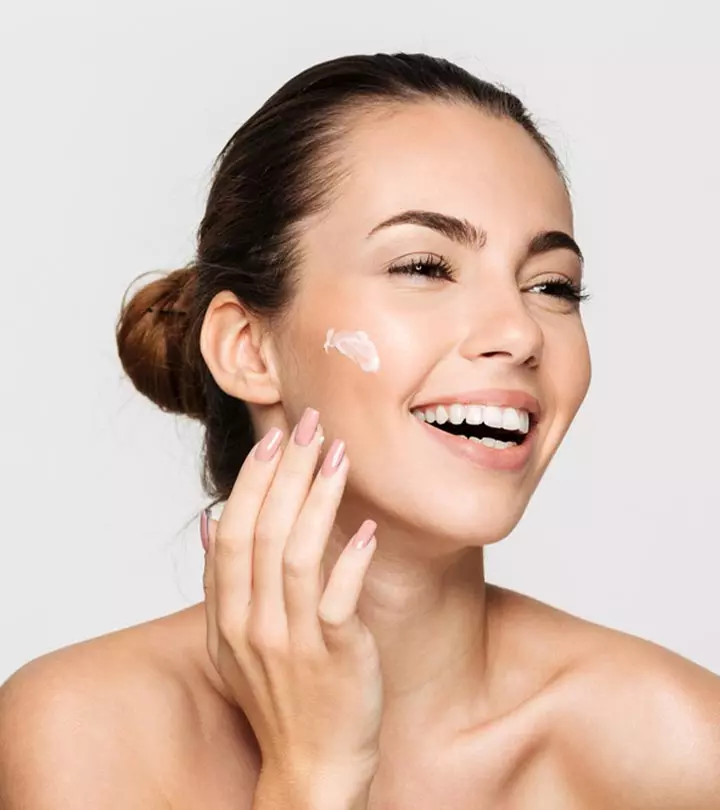
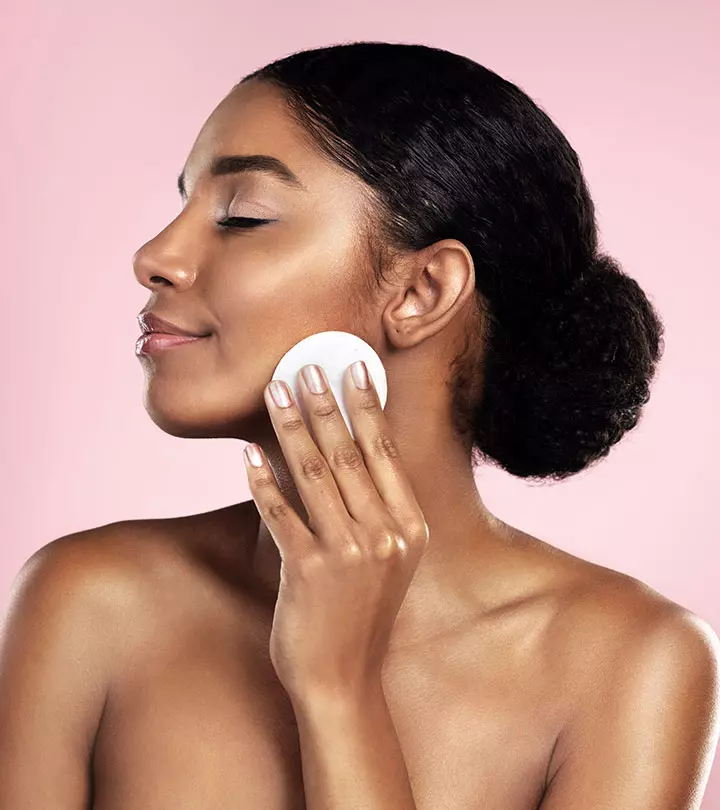
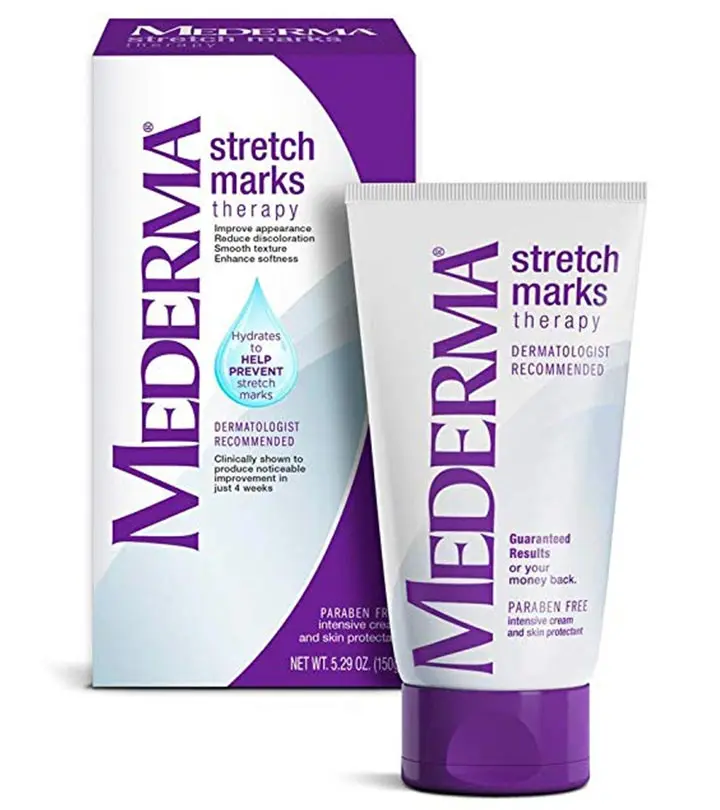
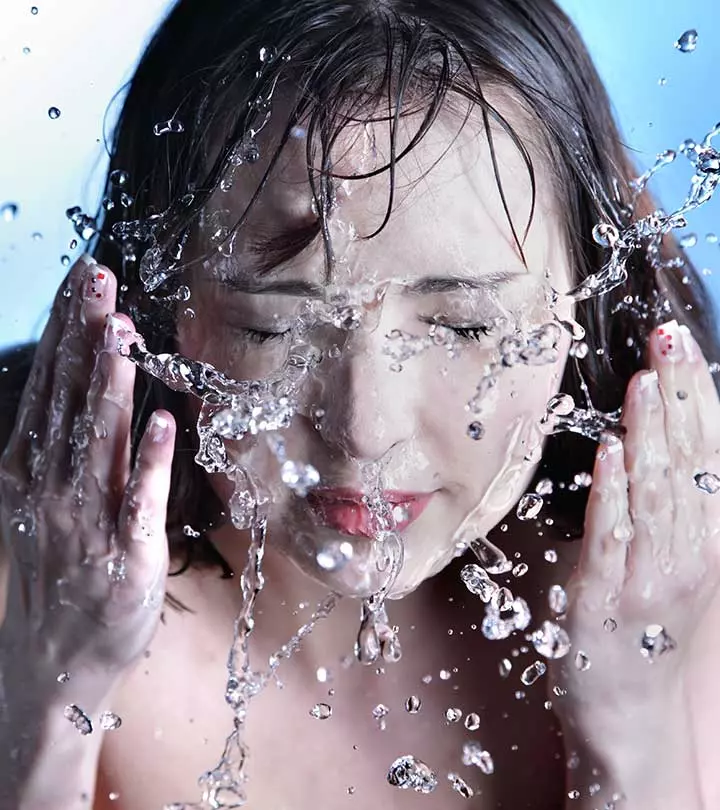

Community Experiences
Join the conversation and become a part of our empowering community! Share your stories, experiences, and insights to connect with other beauty, lifestyle, and health enthusiasts.